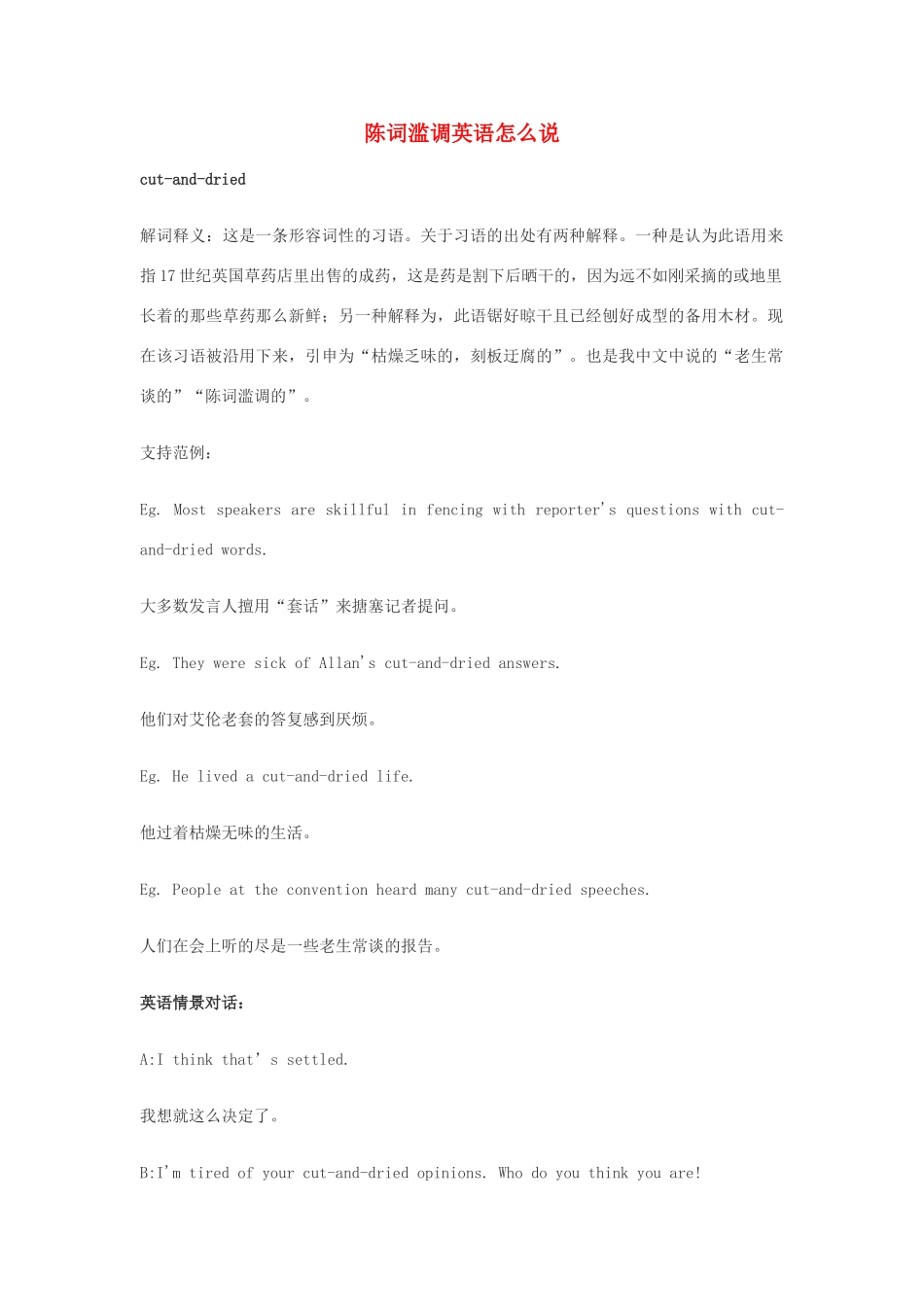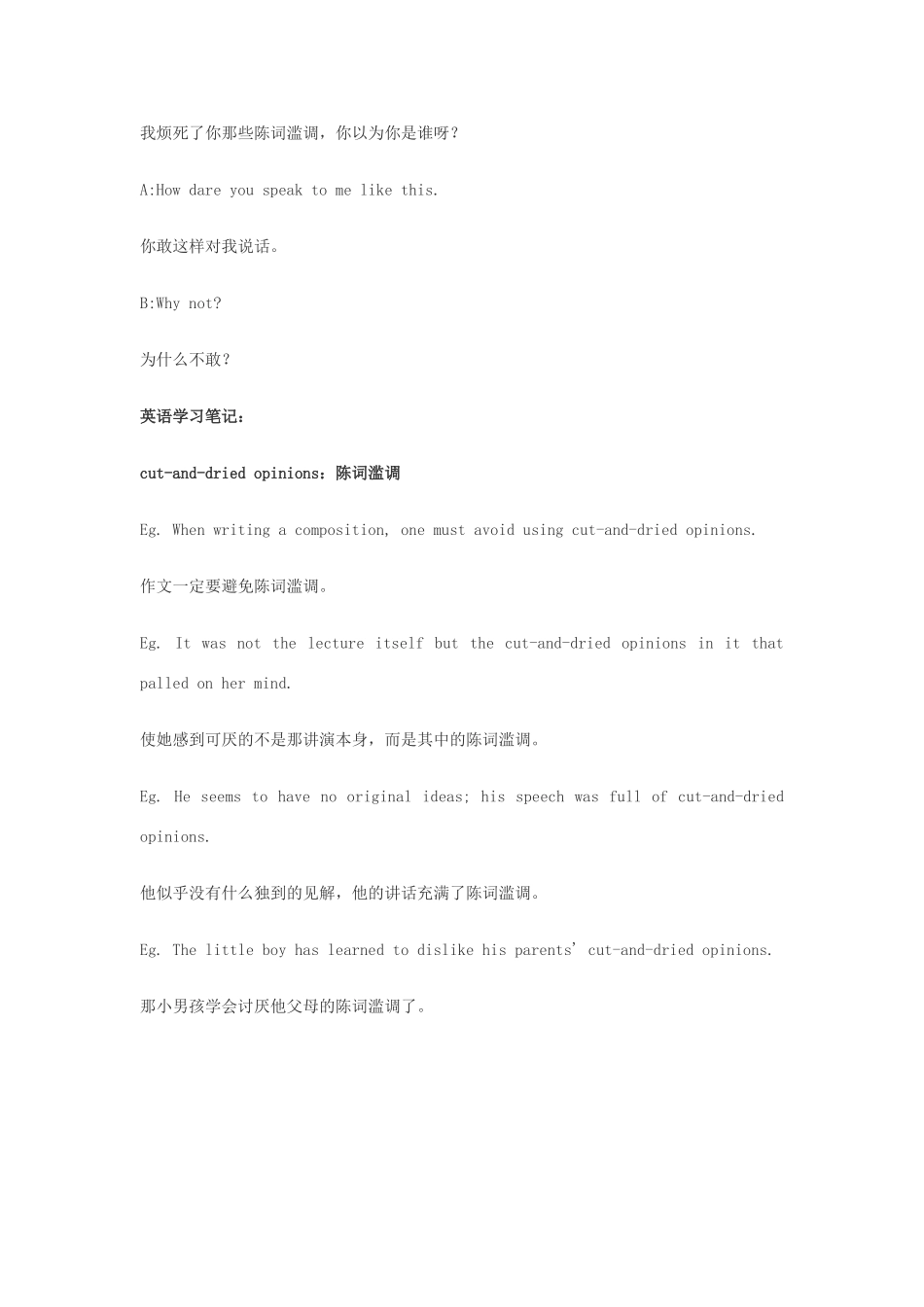陈词滥调英语怎么说cut-and-dried解词释义:这是一条形容词性的习语。关于习语的出处有两种解释。一种是认为此语用来指 17 世纪英国草药店里出售的成药,这是药是割下后晒干的,因为远不如刚采摘的或地里长着的那些草药那么新鲜;另一种解释为,此语锯好晾干且已经刨好成型的备用木材。现在该习语被沿用下来,引申为“枯燥乏味的,刻板迂腐的”。也是我中文中说的“老生常谈的”“陈词滥调的”。支持范例:Eg. Most speakers are skillful in fencing with reporter's questions with cut-and-dried words.大多数发言人擅用“套话”来搪塞记者提问。Eg. They were sick of Allan's cut-and-dried answers.他们对艾伦老套的答复感到厌烦。Eg. He lived a cut-and-dried life.他过着枯燥无味的生活。Eg. People at the convention heard many cut-and-dried speeches.人们在会上听的尽是一些老生常谈的报告。英语情景对话:A:I think that’s settled.我想就这么决定了。B:I'm tired of your cut-and-dried opinions. Who do you think you are!我烦死了你那些陈词滥调,你以为你是谁呀?A:How dare you speak to me like this.你敢这样对我说话。B:Why not?为什么不敢?英语学习笔记:cut-and-dried opinions:陈词滥调Eg. When writing a composition, one must avoid using cut-and-dried opinions.作文一定要避免陈词滥调。Eg. It was not the lecture itself but the cut-and-dried opinions in it that palled on her mind.使她感到可厌的不是那讲演本身,而是其中的陈词滥调。Eg. He seems to have no original ideas; his speech was full of cut-and-dried opinions.他似乎没有什么独到的见解,他的讲话充满了陈词滥调。Eg. The little boy has learned to dislike his parents' cut-and-dried opinions.那小男孩学会讨厌他父母的陈词滥调了。

